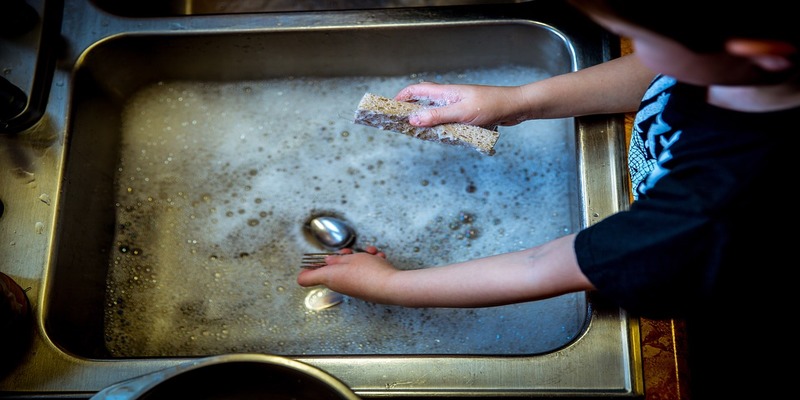
Messy living/bedroom floors, dirty dishes etc. and the list goes on. The ongoing situation with the chore wars.
The burning question in parents is – whether to give or not to give chores to my child, after all, isn’t it our jobs to take care of the household and for the kids to....well..... just be kids? They have a busy life running around and chores can wait surely!
You might also feel that you might be creating more work for yourself by giving your child a job to do as he/she might not do it properly thereby making you have to do it again.
In spite of all these concerns, there are actually advantages to your child partaking in the domestic chores as studies have shown that kids that do chores are more likely to learn responsibility and gain important life skills that will stand them in good stead throughout their lives.
There should be that understanding by all family members that chores are expected and necessary for a household to run successfully and efficiently. They can help create a sense of unity and family and is a great place for your child to learn about teamwork. Parents should take special care to handle the delegation of chores to children in order to avoid the ‘chore wars’
Allow your child to have an active say in the delegation of chores. Give them choices. We all have household chores that we don't like to do, but if it's a chore the child enjoys doing then there's less likelihood it will create a battle in the end. The child will most likely appreciate having the chance to be heard and having a choice.
It is important for parameters to be set early on, for the successful completion of a chore. They may not perform up to scratch when they first start doing the chore, but show them where improvement is needed and praise them for a strong effort. Also, make sure the child understands there will be consequences should they only put in a minimal effort.
Make sure your child understands the need for the chore's effective and efficient completion. Also ensure your child sees that if they don't perform their chores, it affects the other members of the team. Parents also have to work together and be a strong example for their children by completing their own chores each day.
And keep an open mind when a child wants to discuss their thoughts or express their opinions about chores. Make sure the conversation stays positive and on target.
This might all sound so ‘boot camp’ and harsh to a degree, but doing chores does have its benefits for your child.
Benefits
So now you know that delegating chores to your child is not about making him/her‘ the house lackey’, what sort of chores can you give your child?
The chores will vary from age to age or as your child develops, you can determine what jobs you feel your child can do around the house.
Chores for Preschoolers
Simple chores like clearing up after themselves every day e.g. their toys or take their plate or cup to the kitchen after their meal would be a good start. You may want to reward them after that ‘job well done’ by operating a sticker chart system, as kids love such incentives.
Chores for kids of school age
The task of clearing up after themselves would be extended to involve putting away their school bags etc. They could be taught to fold and put away their clothes. Bear in mind, this must not be perfect to start with, and be sure to have the pre-chore brief (the what, where and how of the situation) and do not forget to praise your child for their efforts.
Chores for Tweenies
As your child develops further, they could be taught to take on other responsibilities like sweeping the floors, cleaning the bathroom or dusting. They wouldn’t necessarily need to be rewarded for tasks completed as such tasks are generally considered as part of helping within the family. You can, however, set up a system where your child receives tokens that can be exchanged for other things like ‘golden’ time - extra time in front of the tv, with their device etc or enough accumulated tokens could get them a special trip with friends etc This is something you can get creative with, but do not pay your child to do any house chores so they don't get the wrong idea of how this works.
The only exceptions to this may be if you want to get your child to do something you would otherwise pay for e.g. mow the lawn or clean the windows – and we are talking older kids here (teens and above).
In conclusion, children see what you do and want to emulate that so as parents, you could put that fire of eagerness in your child to good use by introducing them to the real thing. There are many things (at different stages) for you to start your child on (picking up after themselves, helping to set the table, fetching things for you, assisting in the kitchen/garden etc) and if you begin this process from when they are very young, with the understanding that they need to help tidy up after themselves, they will get with the programme much quicker.